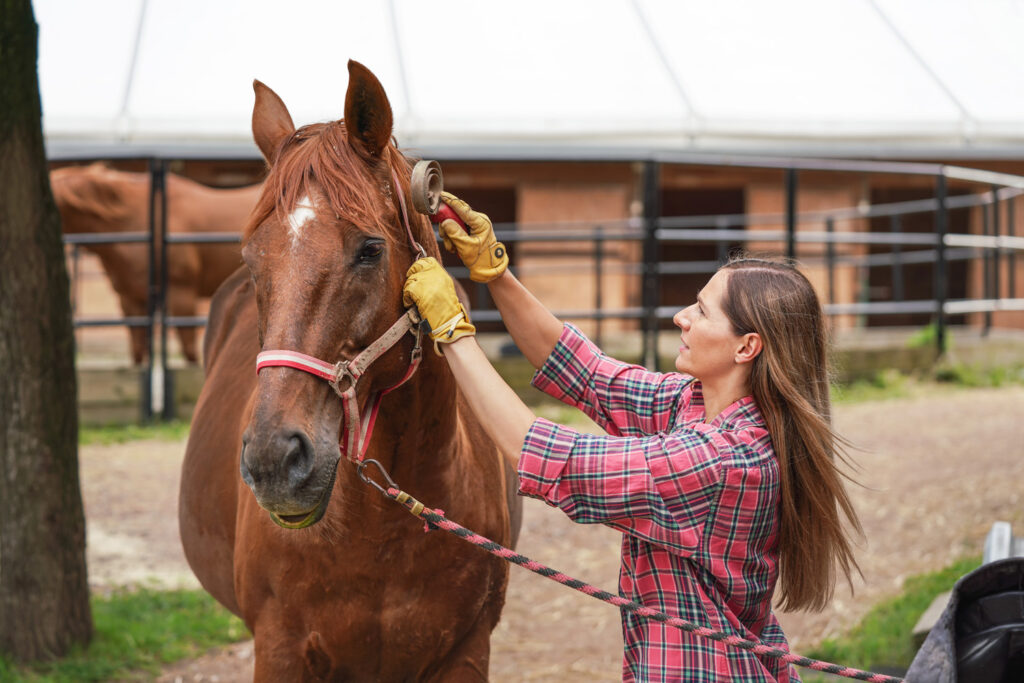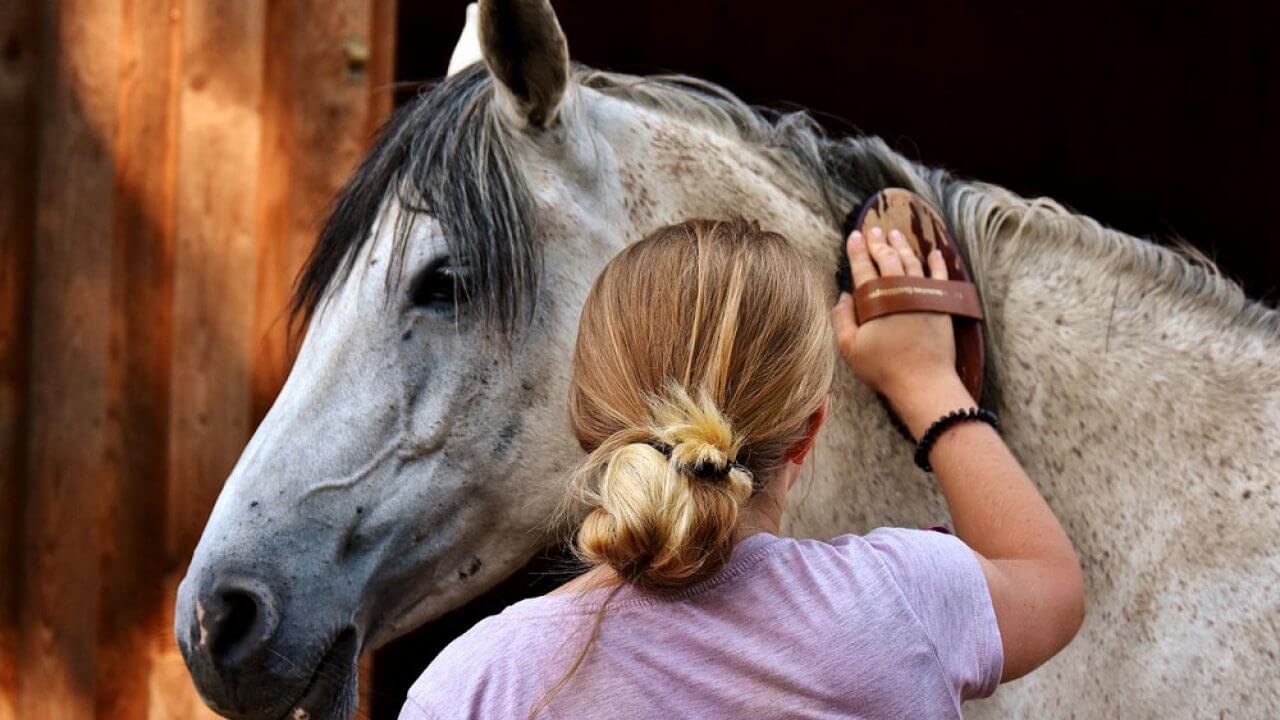As our beloved equine companions age, their needs and behaviors may change, requiring us to adapt our care strategies. Understanding senior horse calming techniques is crucial for maintaining their tranquility and overall well-being. In this article, we will explore various methods and tips that can help soothe your aging horse, ensuring they remain happy and healthy.

Understanding the Needs of Senior Horses
Senior horses, much like senior humans, can experience a range of physical and mental changes. These changes necessitate a specific set of care strategies to keep them calm and content. Recognizing potential stressors and understanding your horse’s unique needs is the first step towards successful senior horse calming techniques.
Recognizing Stress in Senior Horses
Identifying signs of stress is essential. Look for changes in behavior, appetite, and general demeanor. Stress in horses can manifest as restlessness, aggression, or withdrawal. Understanding these signs can help you intervene early with the appropriate calming techniques.
Physical Changes in Aging Horses
As horses age, they may experience joint stiffness, dental issues, and decreased mobility. These physical challenges can contribute to stress. Addressing these issues through regular veterinary care and proper nutrition is vital. Consider exploring best hay options specifically designed for senior horses to support their dietary needs.
Effective Calming Strategies
Creating a Calm Environment
Ensure your horse’s environment is serene and free from excessive noise or disturbances. A quiet, comfortable space can significantly reduce stress levels for older horses. Regular cleaning and a consistent grooming schedule can also contribute to a calming atmosphere.
Incorporating Physical Therapy
Physical therapy can greatly benefit senior horses by alleviating discomfort and promoting relaxation. Techniques such as massage therapy can improve circulation, reduce tension, and enhance your horse’s overall sense of well-being.
Utilizing Herbal Supplements
Herbal supplements have been used for centuries to promote calmness in horses. Products containing chamomile, valerian root, and passionflower may help soothe anxiety in older equines. For more information on suitable supplements, visit herbal supplements for older horses.
Behavioral Techniques for Calming
Establishing Routine and Consistency
Horses thrive on routine. Establishing a consistent schedule for feeding, exercise, and rest can help reduce anxiety in senior horses. Predictability provides a sense of security, which is crucial for their mental well-being.
Engaging in Gentle Exercises
While older horses may not be as active as in their younger days, gentle exercises can be beneficial. Activities like leisurely walks or light trotting can keep them physically fit and mentally stimulated.
The Role of Diet in Calming
Nutrition plays a significant role in a horse’s overall demeanor. A well-balanced diet tailored to an older horse’s specific needs can prevent irritability and promote calmness. Consult with a veterinarian or equine nutritionist to ensure your horse’s diet is optimal.
Hydration is Key
Dehydration can lead to irritability and stress in horses. Ensure your senior horse has constant access to clean, fresh water to maintain hydration levels.
When to Seek Professional Help
If your horse’s anxiety persists despite implementing various calming techniques, it may be time to consult a professional. Equine behaviorists and veterinarians can offer expert advice and potential solutions tailored to your horse’s needs.
Conclusion
Caring for a senior horse requires patience, understanding, and a willingness to adapt your care strategies. By implementing these senior horse calming techniques, you can create a more peaceful and fulfilling life for your aging equine friend. Remember, every horse is unique, and what works for one may not work for another. Stay observant, be patient, and most importantly, cherish the time you have with your senior horse.

FAQs
What are common signs of stress in senior horses?
Common signs include changes in behavior, appetite, and general demeanor, such as restlessness, aggression, or withdrawal.
Can diet influence a horse’s calmness?
Yes, a well-balanced diet tailored to a senior horse’s needs can prevent irritability and promote calmness.
When should I seek professional help for my senior horse’s anxiety?
If anxiety persists despite various calming techniques, consulting a professional like an equine behaviorist or veterinarian is advisable.
For more information on caring for older horses, visit Cleveland Equine.
This article contains affiliate links. We may earn a commission at no extra cost to you.
